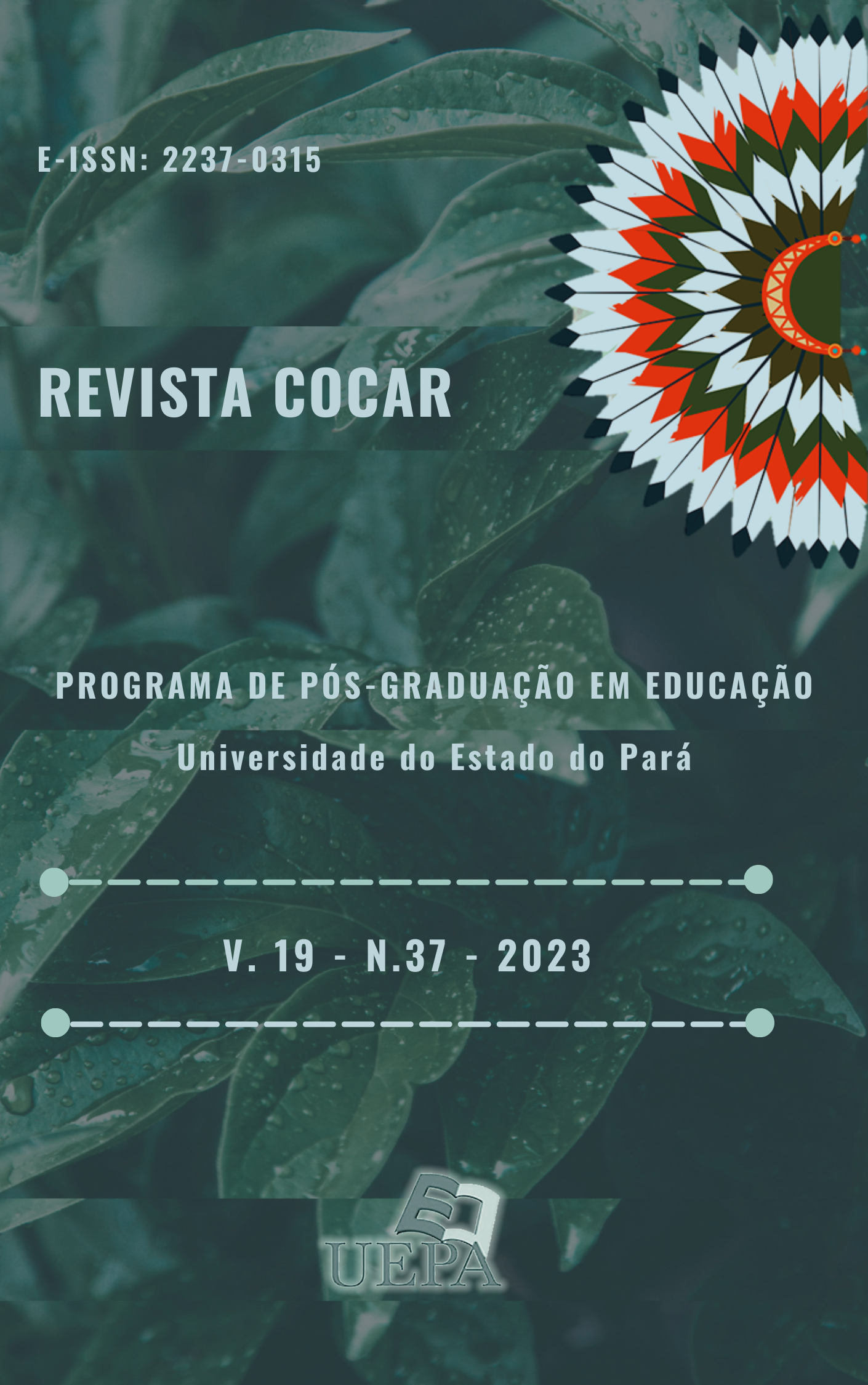Proposição de Problemas de Análise Combinatória
Posing of Combinatorial Analysis Problems
Palavras-chave:
Proposição de Problemas, Resolução de Problemas, Elemento disparador, PromptResumo
A proposição de problemas possibilita aos estudantes relacionar a aprendizagem matemática com suas vivências e interesses. No entanto, vários aspectos dessa atividade precisam ser explorados para entender suas implicações. Neste estudo, de natureza qualitativa, é analisada uma prática educativa de proposição problemas de Análise Combinatória, com estudantes de um curso técnico em Informática, com foco no planejamento da atividade e nos problemas criados. Os resultados revelaram que as características da atividade – que envolveu os estudantes na busca por temas relacionados aos problemas de Análise Combinatória, bem como na socialização e discussão desses problemas em grupos – estimulou a criação de problemas matematicamente interessantes e relevantes para sua área de formação, contribuindo, ainda, no desenvolvimento de aspectos formativos.
Palavras-chave: Proposição de Problemas; Resolução de Problemas; Elemento Disparador; Prompt.
Abstract
Problem posing enables students to relate mathematical learning to their experiences and interests. However, various aspects of this activity need to be explored in order to understand its implications. This qualitative study analyzes the educational practice of posing Combinatorial Analysis problems with students on a technical course in Computer Science, focusing on the planning of the activity and the problems created. The results revealed that the characteristics of the activity - which involved the students searching for topics related to Combinatorial Analysis problems, as well as socializing and discussing these problems in groups - encouraged the creation of mathematically interesting problems relevant to their area of training, while also contributing to the development of formative aspects.
Keywords: Problem Posing; Problem Solving; Trigger Element; Prompt.
Downloads
Referências
ALLEVATO, N. S. G.; ONUCHIC, L. de la R. Ensino-Aprendizagem-Avaliação de Matemática: por que Através da Resolução de Problemas? In: ONUCHIC, L. de la R.; ALLEVATO, N. S. G.; NOGUTI, F. C. H.; JUSTULIN, A. M. (Org.). Resolução de Problemas: teoria e prática. 2 ed. E-book. Jundiaí: Paco, 2021, p. 40-62.
BRASIL. Ministério da Educação. Base Nacional Comum Curricular. Brasília: MEC/SEB, 2018.
BONOTTO, C. Artifacts as sources for problem-posing activities. Educational Studies in Mathematics, v. 83, n. 1, p. 37-55, 2013.
CAI, J. What Research Says About Teaching Mathematics Through Problem Posing. Éducation et didactique, v. 16, n. 3, p. 31-50, 2022. DOI: 10.4000/educationdidactique.10642
CAI, J.; KOICHU, B.; ROTT, B.; ZAZKIS, R.; JIANG, C. Mathematical problem posing: Task variables, processes, and products. In: FERNANDEZ, C. et al. (eds.). Proceedings of the 45th of the Conference of the International Group for the Psychology of Mathematics Education, v. 1, p. 119-145, 2022.
CAI, J.; RAN, H.; HWANG, S.; MA, Y.; HAN, J.; MUIRHEAD, F. Impact of prompts on students’ mathematical problem posing. The Journal of Mathematical Behavior, n. 72, p. 1-15, 2023. DOI: 10.1016/j.jmathb.2023.101087.
CHEN, T.; CAI, J. An elementary mathematics teacher learning to teach using problem posing: A case of the distributive property of multiplication over addition, International Journal of Educational Research, v. 102, p. 1-11, 2020. DOI: 10.1016/j.ijer.2019.03.004
CRESPO, S. A Collection of Problem Posing experiences for prospective mathematics teachers that make a difference. In: SINGER, F. M.; ELLERTON, N. F.; CAI, J. (ed.). Mathematical Problem Posing: From research to effective practice. New York: Springer, 2015. p. 494-511.
ELLERTON, N. F.; SINGER, F. M.; CAI, J. Problem Posing in Mathematics:
Reflecting on the Past, Energizing the Present, and Foreshadowing the Future. In: SINGER, F. M.; ELLERTON, N. F.; CAI, J. (ed.). Mathematical Problem Posing: From research to effective practice. New York: Springer, 2015. p. 547-556.
ENGLISH, L. Teaching and Learning Through Mathematical Problem Posing: Commentary. International Journal of Educational Research. v. 102, p. 1-5, 2020. DOI: 10.1016/j.ijer.2019.06.014.
GIESELER, L. C.; POSSAMAI, J. P.; BENTO, K. L. Proposição e resolução de problemas: análise e validação de indicadores gerais no contexto Laklãnõ/Xokleng: Problem posing and solving: analysis and validation of general indicators in the Laklãnõ/Xokleng context. Revista Cocar, [S. l.], v. 15, n. 32, 2021. Disponível em: https://periodicos.uepa.br/index.php/cocar/article/view/4179. Acesso em: 26 ago. 2023.
GOLDENBERG, M. A arte de pesquisar: como fazer pesquisa qualitativa em Ciências Sociais. 8. ed. Rio de Janeiro: Record, 2004.
NCTM. Curriculum and Evaluation Standards for School Mathematics. Reston, VA: National Council of Teachers of Mathematics, 1989.
NCTM. Principles and Standards for School Mathematics. Reston, VA: National Council of Teachers of Mathematics, 2000.
NCTM. Catalyzing change in early childhood and elementary mathematics: initiating critical conversations. Reston, VA: National Council of Teachers of Mathematics, 2020.
POSSAMAI, J. P.; ALLEVATO, N. S. G. Problem Posing: images as a trigger element of the activity. Revista Internacional de Pesquisa em Educação Matemática, v. 13, n. 1, p. 1-15, 2023. DOI: 10.37001/ripem.v13i1.3274
POSSAMAI, J. P.; ALLEVATO, N. S. G.; STRELOW, S. B. Proposição de problemas nos Anos Iniciais: reflexões sobre elementos disparadores e prompt. Revista Paranaense de Educação Matemática, [S. l.], v. 12, n. 27, p. 139–157, 2023. DOI: 10.33871/22385800.2023.12.27.139-157.
SILBER, S.; CAI, J. Pre-service teachers' free and structured mathematical problem posing, International Journal of Mathematical Education in Science and Technology, n. 48, v. 2, p. 163-184, 2017. DOI: 10.1080/0020739X.2016.1232843
SILVER, E. A. On mathematical problem posing. For the Learning of Mathematics, v. 14, n. 1, p. 19-28, feb. 1994.
SINGER, F. M.; ELLERTON, N.; CAI, J. Problem-Posing Research in Mathematics Education: New Questions and Directions. Educational Studies in Mathematics, v. 83, p. 1-7, 2013. DOI 10.1007/s10649-013-9478-2
ZHANG, H.; CAI, J. Teaching mathematics through problem posing: insights from an analysis of teaching cases. ZDM Mathematics Education, n. 53, p. 961-973, 2021. DOI: https://doi.org/10.1007/s11858-021-01260-3
Downloads
Publicado
Métricas
Visualizações do artigo: 313 pdf downloads: 124























